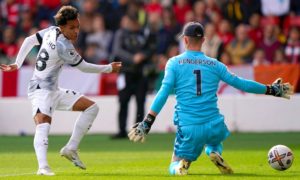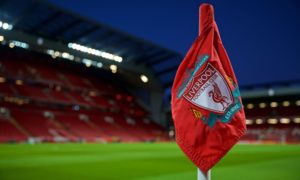Hot take time: Roberto Firmino has always been the weak link in Jurgen Klopp’s frontline.
Having signed for Brendan Rodgers’ Liverpool from Hoffenheim in the summer of 2015 and played under Jurgen Klopp since October that year, it’s clear that there’s nothing left about Firmino’s game that fans are yet to see.
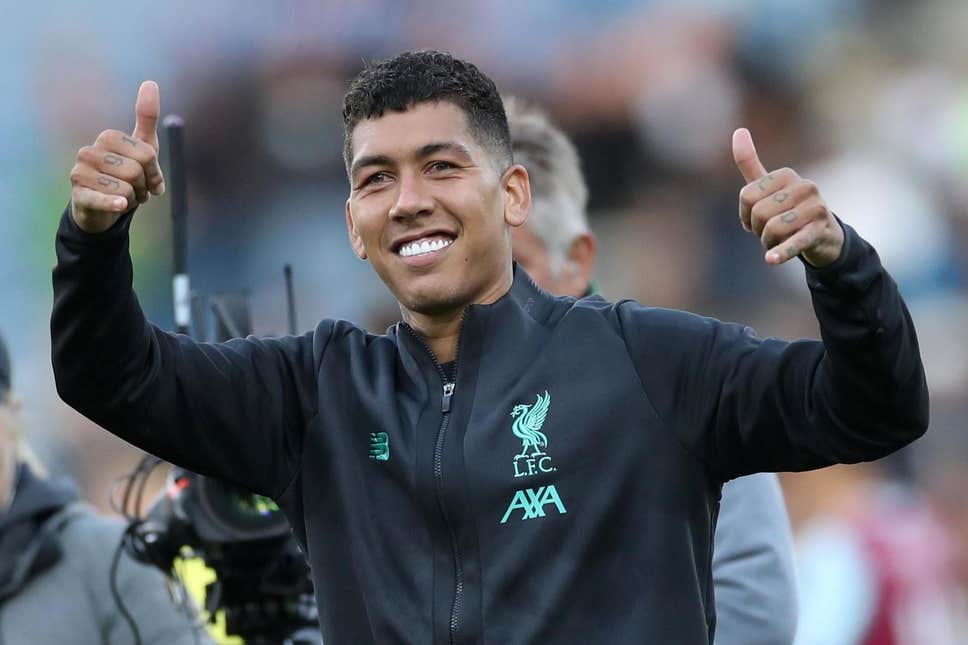
Firmino is a stylish and silky player who undoubtedly has had a pivotal role in Liverpool’s ascension from mid-table mediocrity under Rodgers in the 2015-16 season, to literal world beaters under Klopp in 2020. However, his team’s success on the pitch has largely been a smokescreen from what has been over two and a half years of dramatic and damning decline for the Brazilian. He is the Reds’ number nine, their focal point in central attack, but remains one of the most consistently low scorings forward in the entire league.
Players like Firmino do exist, they are angels for managers like Klopp to manage, and they do have their place in the world, but Liverpool are no longer a side with Christian Benteke, Divock Origi, Dominic Solanke and Daniel Sturridge waiting in the wing, they have one of the most clinical and dangerous forwards in the country doing the business whenever he plays.
With Diogo Jota justifying a spot in Klopp’s starting eleven more and more every time he plays, here’s exactly why the German manager needs to face facts, put aside any loyalty or favouritism and demote Firmino to behind the Portuguese talisman.
Two+ Seasons Of Decline
Regardless of their skill, playmaking and overall flexibility in a position, a centre forward with the number nine on the back of their shirt will always be judged on the number of goals they score in a season.
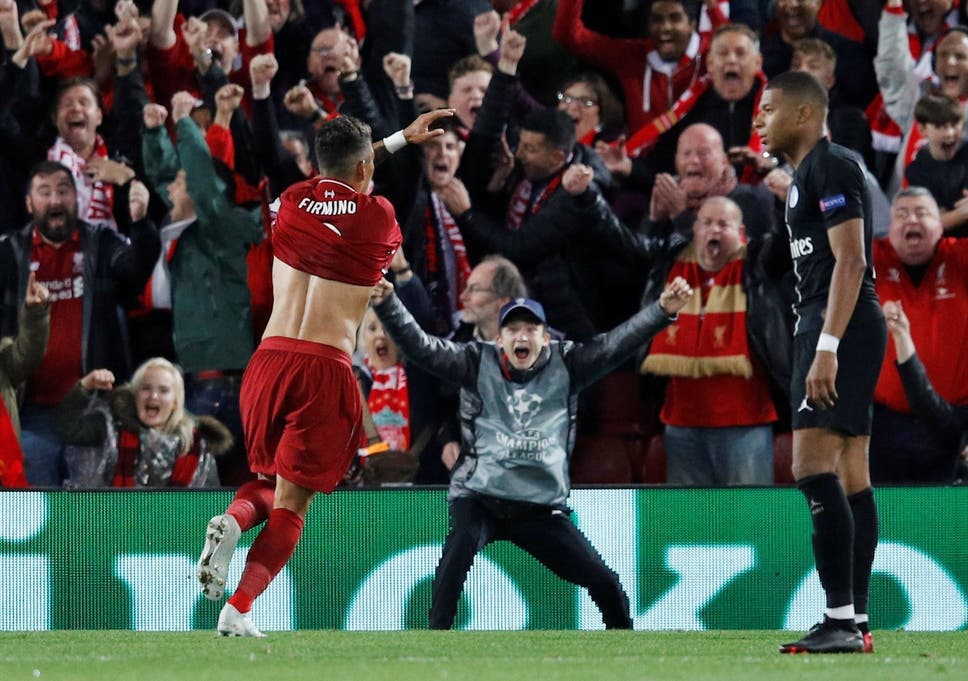
Roberto Firmino hit 23 goals in 90 appearances across his first two seasons in England in all competitions, before hitting his peak with 27 in 54 appearances in 2017/18 alone as the Jurgen Klopp train started to run and the Reds reached the Champions League final. It wasn’t quite as clinical as Sadio Mane’s 20 in 44 that year, or anywhere near Mohammed Salah’s frankly absurd 44 in 52, but it was still more than decent for the Brazilian.
However, as Jurgen Klopp learned to put on the brakes and turn Liverpool into more mature serial winners that now top every soccer betting market out there by focusing more on his defence, Firmino’s numbers soon began to plummet.
In 2018-19, Firmino hit 16 goals from 48 games in all competitions (for reference, Mane hit 26 from 50 and Salah managed 27 from 52), and the number continued to fall to 12 in 52 in 2019-20 against Mane’s 22 in 47 and Salah’s 23 in 48.
Roberto Firmino did not attempt a single shot or create a single chance against West Ham, the first time he has failed to do so in a home Premier League game in over two years.
Defensive forward.™️ pic.twitter.com/CvGuS5AQwA
— Squawka Football (@Squawka) October 31, 2020
And when talking specifically about the Premier League, the Holy Grail to most Liverpool fans, the numbers are made to look even worse for Firmino. His highest tally was 15 in 37 across the 2017-18 season, however, that number once again dropped dramatically to 12 in 34 in 18-19 and then all the way down to just 9 in 38 as the Reds went and won the league at a canter, it makes for some alarming reading.
Not The Playmaker People Think
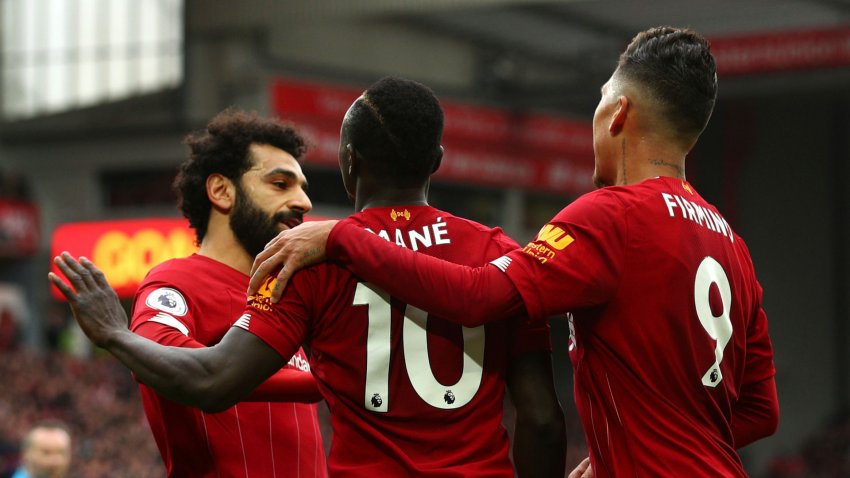
The defence people always have for Firmino and his low goal tally is usually ‘Bobby players deep and feeds Sadio and Salah. He can’t be scoring all the goals if he’s the one making them.’
Whilst Firmino does drop deep at times and is certainly a more selfless centre forward than most others in the Premier League, his actual assist numbers over the years isn’t much to look at either surprisingly. He registered 7 assists in 2017-18, 6 in 18-19 and 8 in 19-20. Again, for reference, Mohamed Salah outperformed Firmino comfortably with a whopping 28 assists by himself over the course of the same timeframe.
What might be the most alarming statistic about Firmino’s dramatic decline is his xG tallies, however, which tell a very different story to the one usually used to defend the Brazilian.
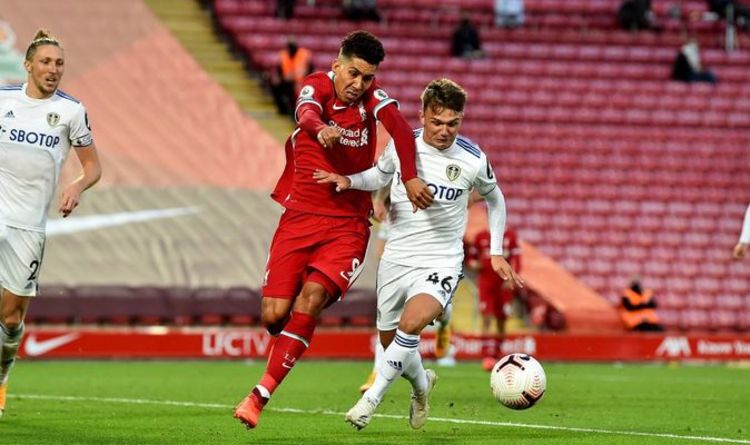
According to Understat, Firmino’s xG (the number of goals he was expected to score based on the quality of chances) for the 2017-18 season was -4.24 better than what he did score, indicating a healthy and prolific season. It then dropped to a far more usual +1.74 in 18-19, but then nosedived to +7.69 in 19-20.
Scoring nearly eight goals fewer (which would have taken him to 17 for the Premier League season) than what he, quote on quote, ‘should’ have scored is a seriously alarming statistic and does begin to raise the question of whether Jurgen Klopp can truly justify selecting this sort of player over one fresh off the back of a prolific Champions League hattrick in Diogo Jota.



